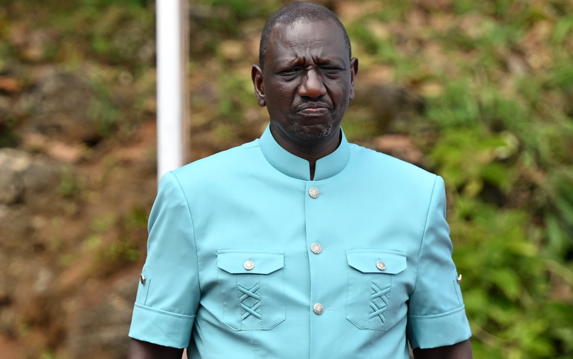KENYA’S PARLIAMENT has banned traditional African clothes from being worn within the building.
The new rules came from the Speaker of Parliament Moses Wetangula, who also said a popular suit once worn by late Zambian President Kenneth Kaunda, would not be welcome in parliament.
Under the new rules, the Kaunda suit, which is a safari-style jacket with matching trousers, will be banned, even though it is a popular choice of attire for current Kenyan president William Ruto.
On Tuesday, Wetangula said his new rules stem from “emerging fashion trends that now threaten the established parliamentary dress code.”
He continued: “It has become necessary for me to depart from what has been obtaining regarding the admittance of the Kaunda suit as appropriate dress.”
“I do this to guard against negating the set standards especially, given the current preference by some members to dress easy while attending parliamentary business,” he said.
According to the Speaker’s rules, a proper dress code for men “means a coat, a collar, a tie, long-sleeved shirt, long trousers, socks, shoes, or service uniform”.
“For ladies, business, formal, or smart casual wear applies. Skirts and dresses should be below knee-length and decent. Sleeveless blouses are prohibited,” Wetangula said.
Prohibited
He added: “All members must observe all of the speakers rules on the dress code not only in the chamber, but also in committees, in the lounges and in the dining area.”
He also said that “hats and caps for men are not permitted in the chamber and in the committees.”
The Speaker also banned “traditional and cultural attire”. The Kaunda suit has been allowed previously in parliament.
The news of the ban has not gone down well on social media, with some calling the announcement as “trying to imitate European customs.”


Comments Form